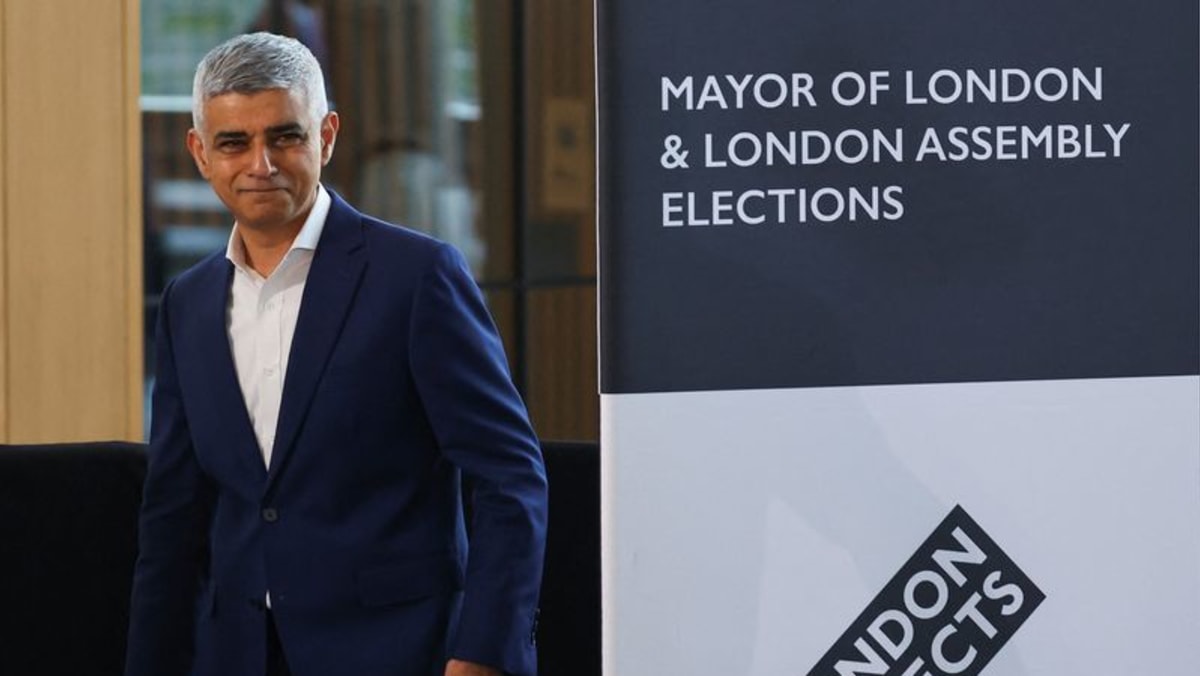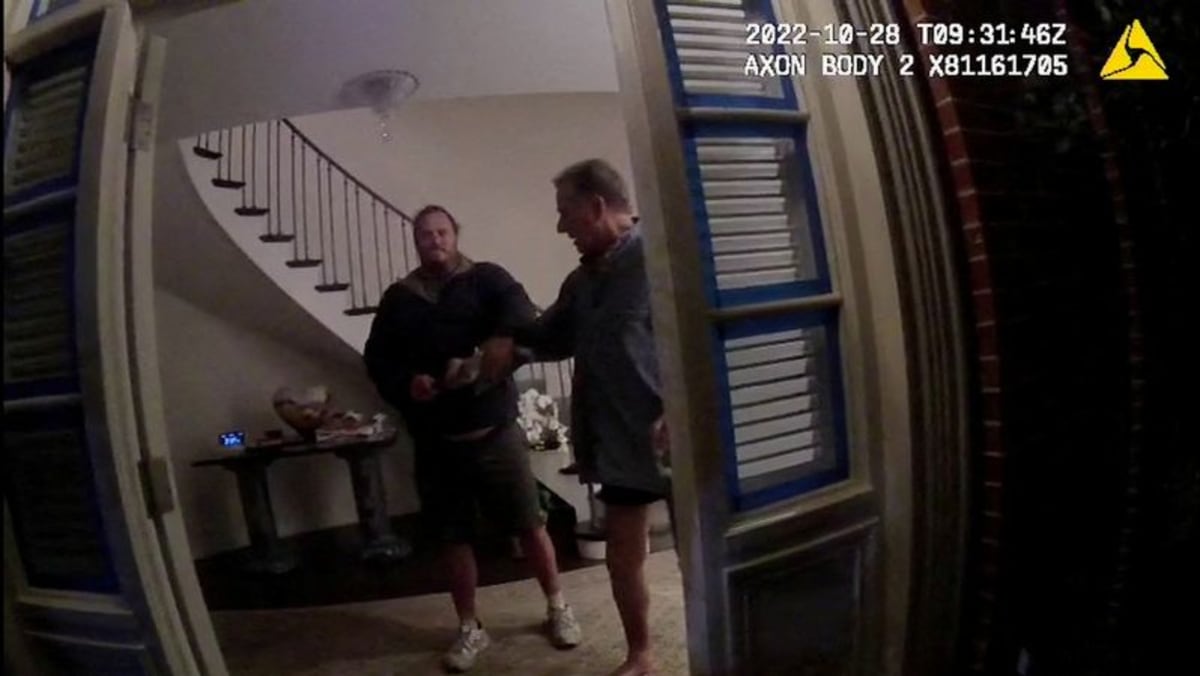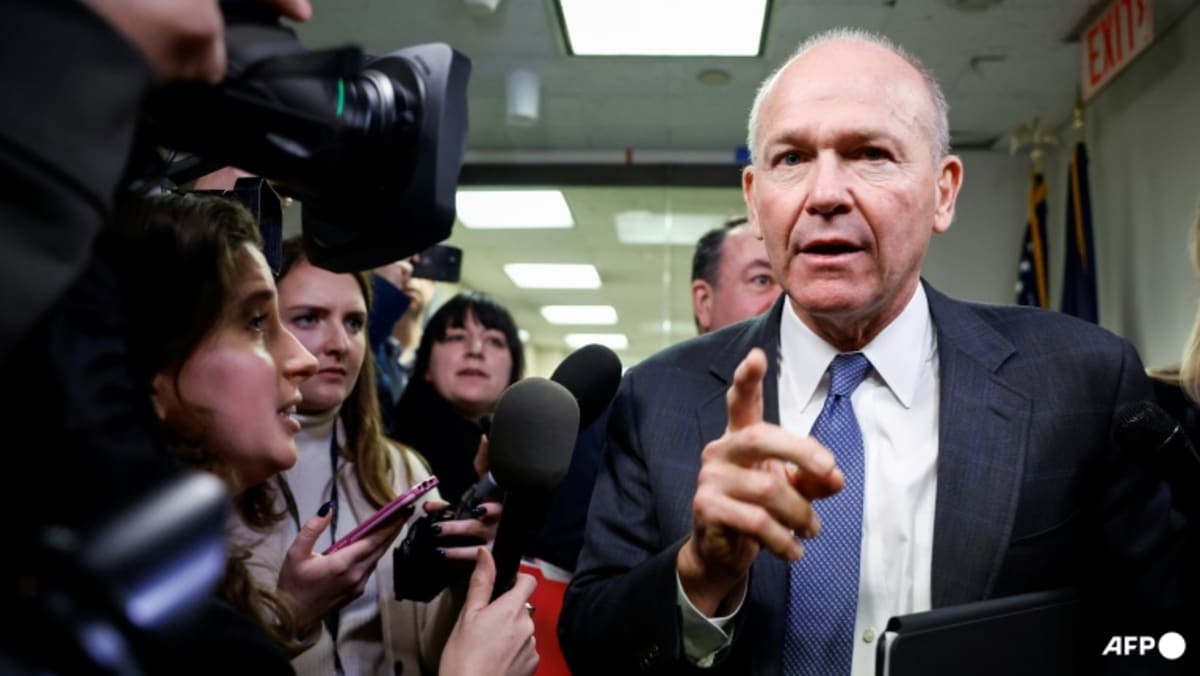KNIFE CRIME
But Khan’s own tenure has not been without its controversies, particularly over last year’s expansion of an Ultra-Low Emission Zone into the largest pollution-charging scheme in the world.
The daily toll on the most-polluting vehicles prompted a fierce backlash in outer boroughs of Greater London, with anger at the extra financial burden during a cost-of-living crisis.
Khan has also been criticised for failing to get to grips with high levels of knife crime and since last year, his handling of large weekly pro-Palestinian protests.
Born in London in 1970 to parents who had recently arrived from Pakistan, Khan was the fifth child out of seven brothers and one sister.
He grew up in public housing in Tooting, an ethnically mixed residential area in south London, and slept in a bunk-bed until he was 24.
His modest background plays well in a city that is proud of its diversity and loves a self-made success story.
Khan still regularly recalls how his father drove one of London’s famous red buses, and his mother was a seamstress.
He is a handy boxer, having learnt the sport to defend himself in the streets against those who hurled racist abuse at him, and two of his brothers are boxing coaches.
He initially wanted to become a dentist, but a teacher spotted his gift for verbal sparring and directed him towards law.
He gained a law degree from the University of North London and started out as a trainee lawyer in 1994 at the Christian Fisher legal firm, where he was eventually made a partner.
He specialised in human rights, and spent three years chairing the civil liberties campaign group Liberty.
He represented Louis Farrakhan, leader of the Nation of Islam movement, and Babar Ahmad, a mosque acquaintance who was jailed in the United States after admitting providing support to the Taliban authorities in Afghanistan.
HIGHER AMBITIONS?
Khan joined Labour at 15-years-old when Conservative prime minister Margaret Thatcher was in her pomp.
He became a local councillor for Tooting in the Conservative-dominated Wandsworth local borough in 1994, and its member of parliament in 2005.
He still lives in the area with his lawyer wife Saadiya and their two teenage daughters.
Labour prime minister Gordon Brown made him communities minister in 2008 and he later served as transport minister, becoming the first Muslim minister to attend cabinet meetings.
In parliament, he voted for gay marriage — which earned him death threats.
As mayor, he vowed to focus on providing affordable homes for Londoners and freezing transport fares, but — like many in power around the world — saw his agenda engulfed by the coronavirus pandemic.
He is London’s third mayor after Labour’s Ken Livingstone (2000-2008) and Johnson (2008-2016), with widespread speculation he could eventually try to follow his predecessor and become prime minister.














